The complexities of parenting siblings of a chronically ill child
A rare disease diagnosis is challenging, but can prompt important life lessons
Written by |

One thing I aim to do by writing this column is to bring some focus to what life looks like when raising a child with Alagille syndrome. We want to celebrate the good moments and elaborate on the challenges. My goal is to provide a resource we wished we’d had when our son Finley was diagnosed in April 2021.
My columns naturally focus on Finley, but this time, I want to discuss his older brother, Jackson. I hope to explore how siblings are affected by a rare disease diagnosis and how we are teaching him to be understanding, compassionate, and knowledgeable about what it means to have a sibling with Alagille syndrome.
We experienced no complications during the pregnancy with Jackson. He was born a perfectly healthy little boy a few hours after his expected due date. So when we decided to have another child a few years later, we thought, “We got this. We’ve done this before.”
The fears and unknowns of pregnancy are massive when you are going through it the first time, but once you know what to expect, it can be less daunting. When you experience a high-risk pregnancy like we did with Finn, those feelings come rushing back — only this time, they are compounded by more unknowns, more uncertainty, and real, tangible fear.
You try your best to shield your children from those intense emotions. Jackson was not quite 3 years old when we were going through the pregnancy challenges. Regardless of how we tried to keep our parenting hats on and stay positive, it was an extremely difficult time. I know we weren’t operating at our best as parents. On the other hand, I’m not sure how anyone could. We tried to make Jackson feel as if everything were normal.
The problem was that life was not normal. The dust wasn’t going to settle for months to come. All of this was taking place during the height of the COVID-19 pandemic, in the fall of 2020. So the world was a mess in addition to my mental state. I know I tried my best as a father, but I wasn’t capable of providing my 100% best effort. Everything we were used to had become upended.
The biggest challenge for Jackson came when Finley was born a month premature. One day, we went from my wife, Dani, visiting our doctor and getting some suggestions about vitamins and supplements to support Finley’s growth in utero to delivering Finley a few short hours later. It was a whirlwind. Jackson had to be quickly packed up and was picked up by my mom.
Thankfully, Jackson loves spending time with his nana, but with Finley’s extended stay in the neonatal intensive care unit (NICU), his regular routines were totally thrown off. During our two weeks in the NICU, I would spend the day at the hospital after dropping off Jackson with my mom. In the evening, I’d pick him up and take him home, while his mom stayed with Finley in the NICU. Normally, Jackson would have been in day care, but with the high-risk pregnancy, we decided to keep him home during that period of 2020. His “normal” had been totally flipped upside down for months, and this was taking that change to the extreme.
This unbalanced life of going home, going to Nana’s house, and continually bouncing around proved challenging for Jackson. He was emotional and more difficult than usual. He struggled with how little he saw his parents during that time. The biggest challenge, at his age, was that we couldn’t fully communicate the reason his life changed. My wife and I made a point of informing him what was going on with his new brother, knowing that eventually it would sink in.
This task has become easier over time. Now 6 years old, Jackson knows and can speak about Finley having liver disease. He understands that Finley can get itchy and needs medicine to help. He is learning about the differences with their doctor appointments, and why his brother needs to visit the doctor more than he does. The biggest lesson we are working on is demonstrating that while differences between them are present, they are both valued, loved, and treated the same. We hope these lessons will help carry him forward as he grows.
Jackson has proven to be a wonderful big brother. Obviously, as with any siblings, they have their moments of conflict. Finley can be quite the little-brother instigator. Despite that, we have seen Jackson be a great support.
He used to love helping give Finley his medicine. He asks good questions about what having Alagille syndrome and liver disease means. While I wish we didn’t have to teach these lessons, I know they will help support him in many ways.
These rare disease journeys take a village to navigate, and they affect everyone within your support circle. How you choose to manage them makes all the difference in your experience as a parent. I am thankful to be able to teach my boys important life lessons using the diagnosis Finley received. I am so proud of both of them and will continue to support them unconditionally.
Note: Liver Disease News is strictly a news and information website about the disease. It does not provide medical advice, diagnosis, or treatment. This content is not intended to be a substitute for professional medical advice, diagnosis, or treatment. Always seek the advice of your physician or other qualified health provider with any questions you may have regarding a medical condition. Never disregard professional medical advice or delay in seeking it because of something you have read on this website. The opinions expressed in this column are not those of Liver Disease News or its parent company, Bionews, and are intended to spark discussion about issues pertaining to liver disease.
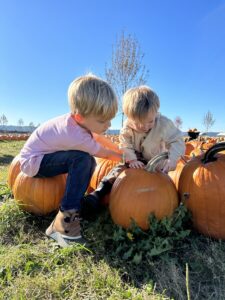

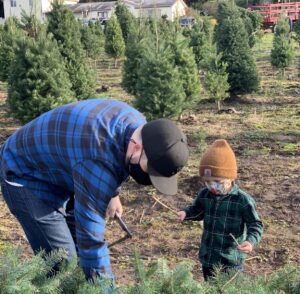
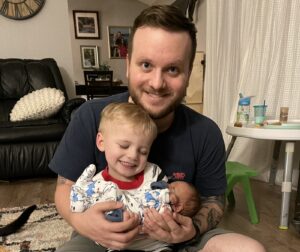
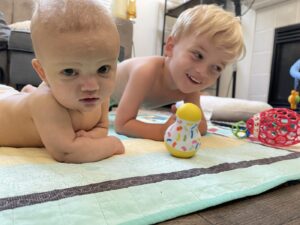
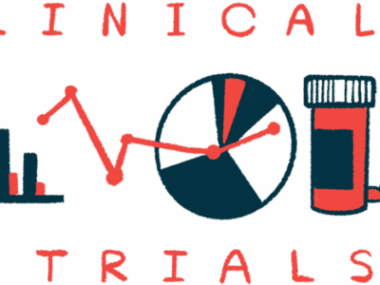
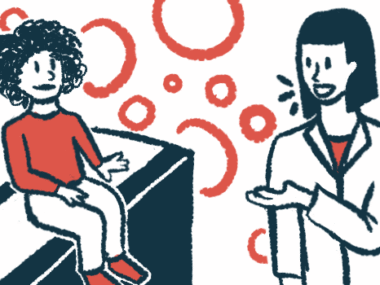

Leave a comment
Fill in the required fields to post. Your email address will not be published.